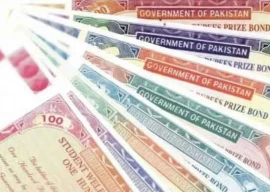
The government on Thursday withdrew subsidy on agriculture loans and asked Zarai Taraqiati Bank Limited (ZTBL) to increase mark-up by six per cent in three years that would result in an immediate increase of one per cent.
The decision comes less than a week after the State Bank of Pakistan cut its policy rate by a massive 1.5 percentage points to appease industrialists. Policy rate is the benchmark at which the central bank lends money to banks.
Headed by Finance Minister Dr Abdul Hafeez Shaikh, the Economic Coordination Committee (ECC) of the cabinet allowed ZTBL to increase mark-up on loans extended to farmers. The bank was providing loans at 8 to 9 per cent mark-up.
“After this decision, genuine farmers will be able to take agriculture loans, as so far only influential people were getting subsidised loans,” said Dr Ishrat Hussain, former governor of State Bank. He said ZTBL has been structured in a manner that benefits only influential landlords.
Last year, banks disbursed Rs263 billion agriculture credit that was just four per cent of total loans provided in the country. The amount was also Rs7 billion less than the level set by the Agriculture Credit Advisory Committee. The government takes away two-third of the funds to finance the budget while most the remaining loans are obtained by the industrialists.
Sugar import move blocked
The ECC blocked a move to import 700,000 tons of sugar on the assumption that people have started consuming 20 per cent more sugar, prompting the authorities to constitute a committee to check the authenticity of the claim.
It constituted a three-member secretaries committee to review the sugar stock position. It authorised the committee that in case of need it can take a decision to import up to 100,000 tons. Imports will be for the next season as the country has sufficient stocks now.
On Thursday, sugar was traded at $669 per ton at the London Futures Exchange. The import of 700,000 tons would have cost the country $468 million, excluding freight and handling charges, at a time when foreign exchange reserves have come down to $17.2 billion and foreign inflows have stopped after the end of the IMF programme.
In the past, various government agencies have been blamed for minting money in commodity import contracts.
The Ministry of Industries contended that sugar consumption has increased from 21 to 25 kilogrammes per person per annum, a claim fiercely contested by many members of the committee, said a senior official of the finance ministry after the meeting.
He said the participants also challenged the ministry’s estimate that sugarcane production would remain below the target of 57.5 million tons this year due to floods in Sindh. However, representatives of Punjab and Khyber-Pakhtunkhwa said they were expecting bumper crops.
350,000 tons urea import allowed
Another official of the finance ministry said the ECC decided to import 350,000 tons of urea for the current Rabi sowing season against demand of 700,000 tons. The official said 180,000 tons would be imported with the help of $100 million credit facility extended by Saudi Arabia.
However, a handout issued by the finance ministry said the ECC had constituted a committee to discuss the import of urea.
Livestock export
The ECC also discussed the summary of the commerce ministry seeking a ban on export of live animals. If the situation persists, the ministry stressed, export of finished leather and value added leather products will substantially decrease. The ECC after having different views from the members directed the ministry to resubmit the summary after consultation with Balochistan and Khyber-Pakhtunkhwa where cattle breeding is a major source of income.
Published in The Express Tribune, October 14th, 2011.
COMMENTS (1)
Comments are moderated and generally will be posted if they are on-topic and not abusive.
For more information, please see our Comments FAQ


1732538123-0/BeFunky-collage-(90)1732538123-0-165x106.webp)

1732536148-0/ariana-(1)1732536148-0-165x106.webp)



1732486769-0/image-(8)1732486769-0-270x192.webp)








farmers which contribute maximum to pakistan will now find it difficult to adopt machinery and better equipments as loans are now expensive. moreover pakistan- an agrarian country needs to serve its masses while progressing towards industrialization.